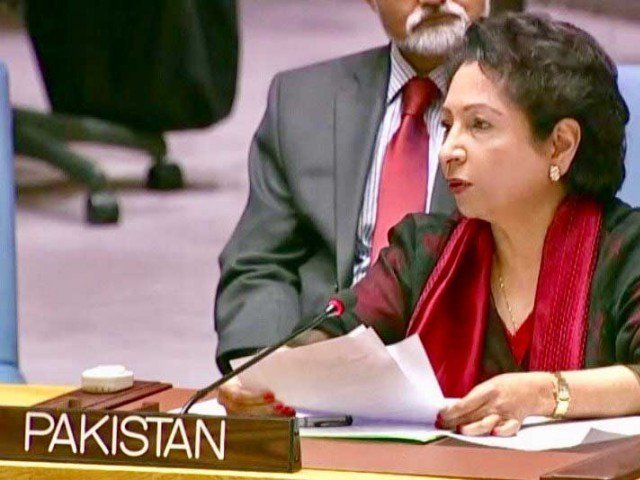
Ambassador Maleeha Lodhi, permanent representative of Pakistan to the UN, was speaking at a side-event on ‘Breaking Stereotypes: Muslim women as agents of change’, one of the four organised by her that made an impact on what is also called the women activists' summit.
The Pakistani envoy linked the attack to stereotyping, which she argued could be seriously consequential as it could lead to misperceptions, demonisation and even violence. "It's a slippery slope when Muslims are stereotyped and mischaracterised, sometimes deliberately by those who also engage in hate speech," Ambassador Lodhi said.
Four Pakistani injured, five missing in New Zealand mosques massacre
She distinguished between culture and religion in asserting that for Muslim women Islam is an enabling agent, not an impediment as is often presumed in Western narratives.
The barriers are patriarchal social structures and overall lack of education in societies.
The annual meeting of the commission, which dates back to 1947, brought to the UN more than 9,000 representatives from civil society organisations.
It will conclude on March 22.
Pakistan's delegation was led by Khawar Mumtaz, who delivered her national statement on Friday.
The event on Breaking Stereotypes, a brainchild of Ambassador Lodhi, attracted a large audience with people prepared to stand throughout the hour-and-a-half event.
About her own professional journey as a Muslim woman, she said it involved facing obstacles, overcoming fears but always dreaming dreams. "My professional path,” Lodhi said, "constantly entailed challenging, defying and overcoming stereotypes. This almost becomes a lifetime occupational hazard for women, and not just in the Muslim world. The important thing is never to allow this to distract or diminish us.”
Pakistan condemns mosques attack in New Zealand
Women, she said, had two choices when confronted with attitudes shaped by stereotypes or when facing barriers: either seethe with resentment or press ahead vigorously to make a difference.
Anger, she said, was not a strategy.
Other speakers from Indonesia, Turkey, Qatar and Iran echoed the view that for Muslim women, faith was no barrier; “indeed throughout Islamic history women have played prominent public roles”.
A correct reading of religion showed that Islam was an enabling factor for women to pursue professional roles. A lively question and answer segment followed presentations by the panel of speakers.
The session was moderated by Pakistani American Professor Ameena Zia. Participating in the side-events were parliamentarians who were here to attend the meeting of the Inter-Parliamentary Union (IPU).
They included MNA Munazza Hassan, Ehsanullah Tiwana, Sassui Palijo and Shehla Raza.
Pakistan's presence during CSW's first week was also visible in the standees that were displayed across the UN Headquarters, depicting women who had made and changed history in Pakistan. They included Mohtarma Fatima Jinnah, Benazir Bhutto, Asma Jahangir, Sharmeen Obaid and Malala Yusufzai among others.
1732498967-0/Outer-Banks--(1)1732498967-0-405x300.webp)
1732086766-0/BeFunky-collage-(74)1732086766-0-165x106.webp)















COMMENTS
Comments are moderated and generally will be posted if they are on-topic and not abusive.
For more information, please see our Comments FAQ